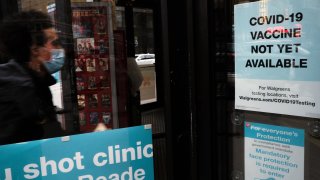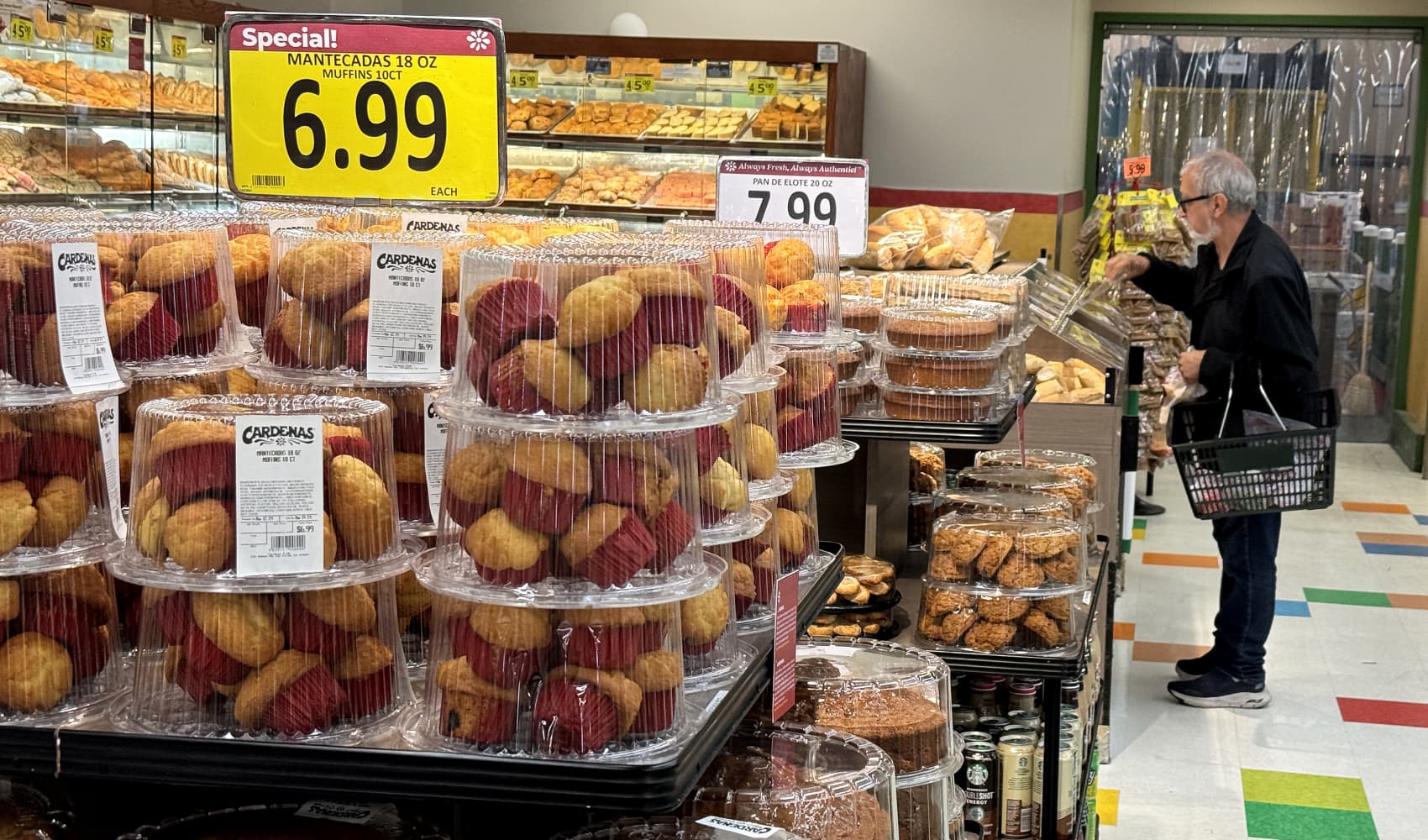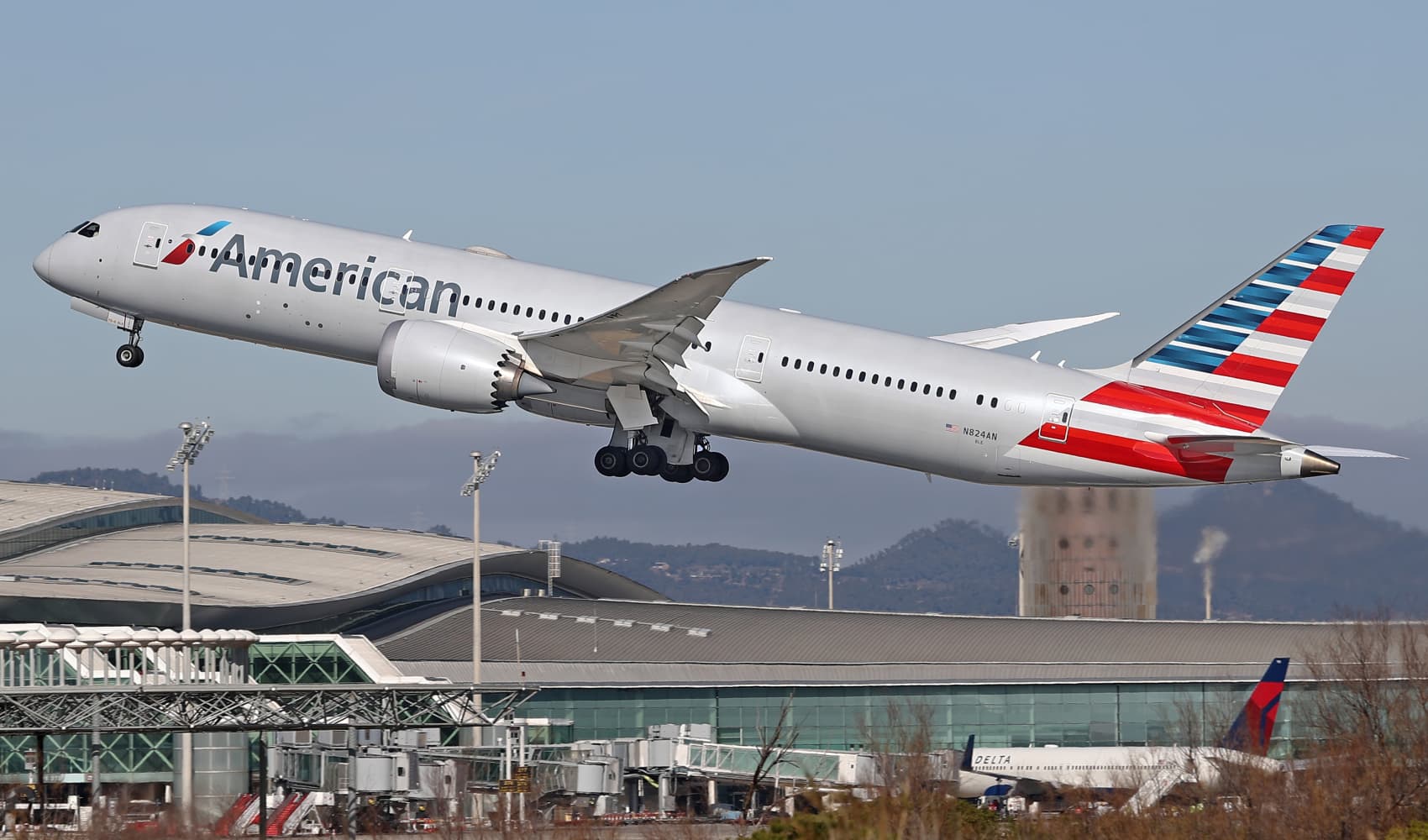
- Pfizer said a final data analysis found its coronavirus vaccine was 95% effective in preventing Covid-19 and, in addition, appeared to fend off severe disease.
- Two days earlier, Moderna announced that preliminary phase three trial data showed its vaccine was 94.5% effective.
- The data from the drugmakers raised hopes that the global economy could soon get back to "normal" after the pandemic wreaked havoc on nearly every country across the globe.
Pfizer and Moderna released positive late-stage trial data this month showing their coronavirus vaccines were highly effective in preventing Covid-19.
The news sent stock markets across the world soaring and gave business executives and world leaders some of the first glimmers of hope that they can bring the epidemic under control and employees back to work.
Now, they just have to figure out how to get the vaccines — both of which require two doses given about a month apart — to 7.8 billion people across the world.
Pfizer said Wednesday that a final data analysis of its vaccine with BioNTech found it was 95% effective in preventing Covid-19 and, in addition, appeared to fend off severe disease. Two days earlier, Moderna announced that preliminary phase three trial data showed its vaccine was 94.5% effective. The data from the drugmakers raised hopes that the global economy could soon get back to "normal" after the pandemic wreaked havoc on nearly every country across the globe.
The two highly effective vaccines are expected to be authorized by the U.S. Food and Drug Administration before the end of the year. It will likely take months, maybe even more than a year, to distribute enough doses for the U.S. and the rest of the world to achieve so-called herd immunity and suppress the virus, public health officials and health experts warn.
Money Report
"We're looking at least the first half of next year as being a period with very, very limited doses," Dr. Soumya Swaminathan, the World Health Organization's chief scientist, said at a press conference from the agency's Geneva headquarters on Monday. "Supplies are going to be limited. There are bilateral deals that many of the companies have done. So many of the doses have already been booked by some countries."
More than 320 million people live in the United States alone and some 7.8 billion across the globe. Both vaccines require two doses at varying intervals.
Health and Human Services Secretary Alex Azar told CNBC on Monday that there will be roughly 40 million doses of vaccine available by the end of this year between the two companies, enough to inoculate about 20 million people. The U.S. also has supply agreements for Covid-19 vaccines from Johnson & Johnson; Sanofi and GlaxoSmithKline; Novavax; and AstraZeneca.
Dr. Anthony Fauci, the nation's leading infectious disease expert, expects that every American could get a vaccine by July or possibly by April.
"Still, this process could be much more complicated and more chaotic than people think," said Yanzhong Huang, a senior fellow for global health at the Council on Foreign Relations, adding that 40 million doses in 2020 will not be sufficient to achieve herd immunity in the U.S. It will depend on when the FDA authorizes the vaccines for wide distribution and how quickly the drugmakers can mass produce the vaccines, he added.
Fortunately, both vaccines use messenger RNA, or mRNA, technology. It's a new approach that is thought to be easier to produce than traditional vaccines.
"We could be quite close to some degree of normality by next fall in terms of businesses open, economy going, sports stadiums open. It's in our grasp to do it," Fauci said at Tuesday's New York Times Dealbook conference.
Still, that timeline could slip, especially as state and local health departments say they haven't received any funds from the federal government for vaccine distribution, and officials still face other logistical challenges such as acquiring enough needles, syringes and bottles to vaccinate people, health experts point out. People must also be trained on how to store and administer the vaccines.
So far the Centers for Disease Control and Prevention has allocated $200 million to jurisdictions for vaccine preparedness, though much of that funding hasn't trickled down to the local level, Lori Freeman, CEO of the National Association of County and City Health Officials, said last month.
Pfizer and Moderna's vaccines themselves present a new logistical challenge as they have to be stored at ultracold temperatures. Moderna said Monday its vaccine remains stable at 36 to 46 degrees Fahrenheit, the temperature of a standard home or medical refrigerator, for up to 30 days. It can be stored for up to six months at negative 4 degrees Fahrenheit. Pfizer's vaccine requires a storage temperature of minus 94 degrees Fahrenheit.
"We're talking super cold. It's completely unprecedented," said Soumi Saha, a pharmacist and vice president of advocacy for Premier, a consulting firm that works with thousands of hospitals and nursing homes. "This is completely new territory for health care supply chains. And so this is a brand new logistical challenge in order to distribute this vaccine and get it to the right place and to do so while maintaining the integrity of the product."
Dr. Krutika Kuppalli, an infectious disease physician at the Medical University of South Carolina, said she worries people living in places with health-care infrastructures, like rural areas and inner cities, could find it difficult to get vaccinated. Those places likely don't have the right storage needed for those vaccines, she said.
"Are they going to have to go to a more metropolitan area and travel further to get the vaccine? Well then, they may not be as willing to do that, especially a vaccine that you have to get twice," said Kuppalli, who also worked as a medical director of an Ebola Treatment Unit in Sierra Leone during the West African Ebola outbreak.
She said officials and experts overseeing logistics also have to think about the global population and countries with limited resources. "They will have to think about transporting the vaccine on an airplane, which is one big problem. Are we going to airplanes that are retrofitted with these freezers to carry the large amount of vaccine?" she added.






